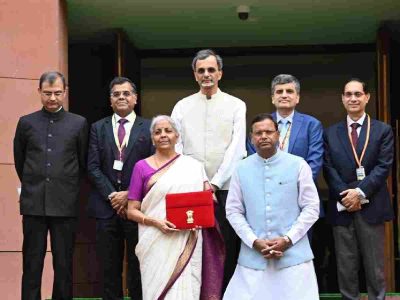Facing a slump, Kohli’s decision of relinquishing the captaincy of the Indian T20 team and RCB were big steps. But were these steps in the right direction, Patriot takes a look
On Monday, the stylish cricketer played his last match for the Royal Challengers Bangalore (RCB) as a captain. The Red Devils lost a close contest to Kolkata Knight Riders in IPL 2021 Eliminator in Sharjah, thereby ending RCB’s hopes of winning the cup under Kohli’s captaincy.
As Virat Kohli was walking back after playing his last innings for the Royal Challengers Bangalore (RCB) as a captain, he was certainly not the man we knew over the last nine seasons, as the leader of the pack. His facial expressions were that of a warrior who had a stacked armoury, yet lost the war. Sad but true.
The RCB management bet heavily on Kohli ever since he was picked up from the Under-19 quota in 2008 for the opening Indian Premier League season. RCB not just made him leader of the pack after just five seasons but also gave him all the freedom to do things his way.
On Monday night, Kolhi’s cross-batted shot, where he wanted to execute a half-hearted half-sweep shot in his desperation to increase the run rate of his team, went horribly wrong as off-spinner Sunil Narine’s straightforward ball deceived him. More than the delivery, it was Kohli’s burden of “quitting captaincy after this season’s IPL” that probably played a big role in forcing him to do something miraculous this time around.
And the result was expected, as has been in the last two years, he has struggled to touch the three-figure mark at the international level, and RCB’s “aggressive leader” entered his dugout with empty hands for the ninth consecutive season.
Kohli knew he had failed to repay the trust that the RCB owners had showered on him with a blank cheque for all these years. And now that he has quit the leadership role, sadly there is no one ready from within the squad to take up the responsibility right now.
But you can’t blame Kohli for all these failures. As a player, his dedication and commitment to his team have been second to none. He has always been the mascot of his team, even though there were other star faces like Chris Gayle (earlier) and AB de Villiers around all these years. The closest Kohli came was in 2016 when RCB finished as runners-up, otherwise, he failed in his duty to identify a core group of players over the years.
Barring De Villiers or Yuzvendra Chahal over the years, Kohli or for that matter his team management failed to have a regular line-up for RCB in recent years. That resulted in 66 wins to 70 defeats in 140 games under Kohli.
How has Kohli changed since 2015?
The way Kohli has shaped up since taking over the captaincy for Team India in 2015, post Mahendra Singh Dhoni’s sudden resignation in Australia which came as a surprise, is a journey in itself.
A shy boy from the west Delhi colony, Chikoo (as he is called by his schoolmates) has never been an “over-aggressive” cricketer on the field. He was rather considered a cool head on such young shoulders after he came up with a mature knock of 90 just a few hours after his father died in 2006.
Everyone sitting there on that day at the Feroz Shah Kotla Ground was sure that he would go on to represent the Indian team but never had any idea that he would change the way cricket is being played in India. Soon, Kohli-led India’s Under-19 side to World Cup victory in 2008 which coincided with the commencement of the first IPL season. This had created a lot of hype around the young Indian players who were successful then.
Many expected Kohli’s home franchise Delhi Daredevils to pick him first in the quota of two U-19 players, but Delhi opted for pacer Pradeep Sangwan. It was Bangalore’s outfit then who bet big on the Delhi boy and never ditched him till date. That’s how Kohli is the only player in the history of IPL who has only represented RCB in all 14 seasons.
No one could afford to sign Kohli even after he relinquished captaincy of RCB at this point of his career. He is forever a leader of his little kingdom in Bangalore, and it would be interesting to see his role in the next season under someone else’s leadership. The 32-year-old Kohli himself has said after playing his last game that “I would be in the RCB till the last day I play in the IPL” and that looks pretty sure at this moment.
The post 30s affects
Former India’s wicket-keeper batsman and first Indian to have butchered Pakistan’s speed guns at Sharjah in the early 80s, Surender Khanna, feels that Kohli always lacked the tactical nuances to win tournaments like the IPL.
Khanna though said that his “passion and energy” was something incomparable to anyone in the game but that wasn’t enough to translate into winning trophies for RCB or even for Team India. The swashbuckling opener of the late 70s and early 80s remembered the golden words of his former teammate, Mohinder Amarnath.
Jimmy (as Amarnath was popularly known) used to say during his mid-30s that “it’s never been easy for any player to keep the same focus on his game after his marriage, or especially after having kids”.

“It’s not just about keeping focus, rather it’s about practising even harder and keeping it simple for you. When you are young, anything is possible. But when you get into your 30s, you have to be careful with your eyesight and reflexes which get slower with time. That’s when you have to be extra careful in adjusting to the new demands of your body,” was how Khanna described the mantra given to him by his senior teammates.
“Cricket is not just a great leveller but a ‘tapasya’ to everyone who is playing at this level. When Mohammad Azharuddin was struggling with his technique during England tour, he turned to maestro Zaheer Abbas for technical adjustments. And just a few tips from someone who had a vast experience of playing in conditions conducive to swing, Azhar not just benefitted but managed to lead from the front, scoring big runs,” Khanna quoted his chat with the former Indian skipper.
He feels that “it’s your performances, which earns you the respect of your teammate and the day you stop performing, you lose respect”.
“Kohli has had a poor batting average in the last two years, without any century. And to make Ravichandran Ashwin sit out on crucial instances he lost that respect of a common cricket lover. Somewhere a message had gone to the public that ‘more than performances, it is about a coterie of players who are being preferred over others for reasons best known to only team management,” Khanna minced no words in criticising team management’s decision to promote Ravindra Jadeja over India’s most successful off-spinner Ashwin in recent England tour.
Khanna cited instances where Jadeja got preference as bowling all-rounder over Ashwin (who has five Test hundreds to his credit and over 400 wickets) or being promoted as No. 5 batsman ahead of Ajinkya Rahane in the fourth Test as great mistakes in recent times.
“If it was any T20 game, I would have agreed. But in Test matches and that too in English conditions, the most technically equipped batsman in the Indian side, that to me has been Rahane, was not to be demoted below Jadeja at any cost”.
Managing workload is the key
However, Kohli’s coach Raj Kumar Sharma has full confidence that it’s just a matter of time that Kohli has not been able to touch the three-figure mark.
For Sharma, who has been coaching Kohli since his early days, his decision to quit IPL and T20 captaincy is a step in the right direction and not taken in haste. “Virat has been scoring runs consistently but unfortunately not scoring hundreds over the last two years. He has set standards so high for himself that no one expects anything less than a century from him. And that’s Virat for me. He is a man with 100% commitment and people who think that he became aggressive only after becoming captain of Team India, I want to tell them that he never took defeats easily even when he was a kid. He was as aggressive as he has ever been since the focus shifted to him.”
Sharma has not seen any changes in Kohli’s reflexes over the last two years. “He will be more free and relaxed now with just managing Test and ODI teams. A time comes in everyone’s life when one has to manage ‘workload’ carefully and that’s how he has reached this decision of relinquishing T20 format leadership to concentrate on his batting.”
Sharma has never felt that Kohli has been affected by his marriage or the birth of his child. “He is a fitness freak, and he still converts singles into twos and twos into threes. There are very few in the world of cricket right now who can match his fitness levels. Nevertheless, there is still a great need to concentrate on his batting.”
Recalling post-2014 batting failure during England tour, Sharma said that Virat spent a week with master blaster Sachin Tendulkar in Mumbai to overcome his technical flaws. “He overcame that difficult patch quickly and sorted out technical issues under Sachin’s supervision. He will certainly find a way out of this present little slump of not achieving a three-figure mark.”
As a coach, Sharma has just one piece of advice for his pupil… “I know you are a sorted guy and clear about your plans. I just want you to be free of all criticism or burden if any, and take a fresh guard in the T20 World Cup.”
(Cover: Virat Kohli played his last match as the captain of Royal Challengers Bangalore in Sharjah on 11 October PHOTO: iplt20.com)





